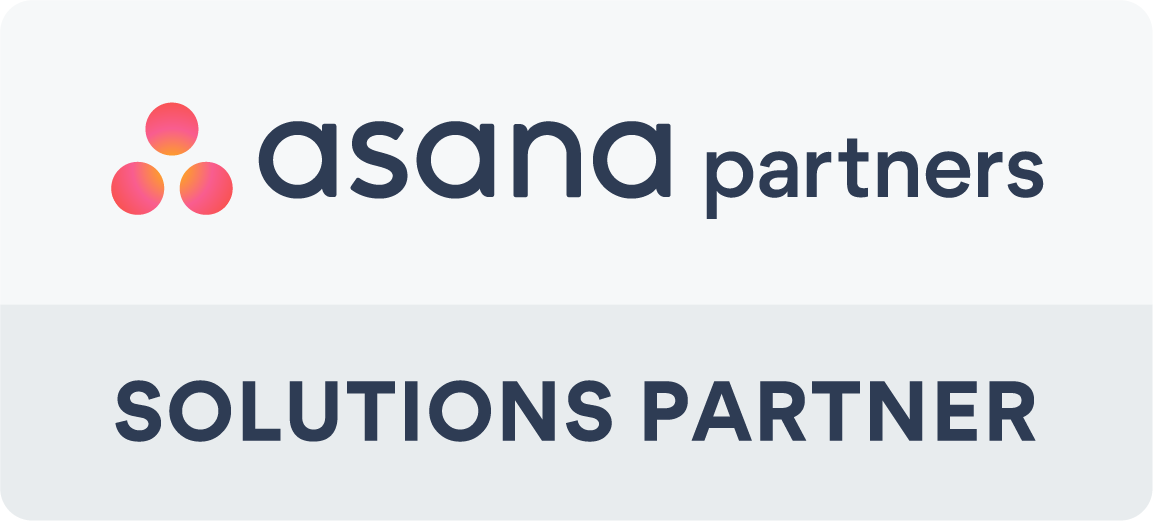In today's rapidly evolving digital landscape, Artificial Intelligence (AI) has emerged as a game-changer for businesses of all sizes and industries. From streamlining operations to enhancing customer experiences, the potential applications of AI within your company are limitless. This comprehensive guide will explore 101 innovative ways to leverage AI to drive your organisation's growth, efficiency, and innovation.
Imagine having access to AI-powered tools and technologies that can automate repetitive tasks, uncover valuable insights from data, and revolutionise how you do business. With AI, you can optimise workflows, personalise customer interactions, and stay ahead of the competition in today's dynamic marketplace. Whether you're in retail, finance, healthcare, or any other industry, there's a wealth of opportunities to harness the power of AI to transform your business.
As a business leader, you understand the importance of staying ahead of the curve and embracing emerging technologies like AI. By incorporating AI into your business strategy, you can unlock new opportunities for growth, efficiency, and competitiveness. From improving operational efficiency and driving revenue growth to enhancing customer satisfaction and reducing costs, the benefits of AI are undeniable. You can achieve your business goals faster and more effectively with AI tools and technologies.
Without further ado, let's dive into 101 ways you can use AI within your business:
- Automate Customer Support: Implement AI-powered chatbots to instantly provide 24/7 customer support and resolve inquiries.
- Personalise Marketing Campaigns: Use AI algorithms to analyse customer data and deliver personalised marketing messages and recommendations.
- Optimise Pricing Strategies: Utilise AI-powered pricing optimisation tools to adjust prices in real time based on demand and market trends.
- Improve Sales Forecasting: Leverage AI algorithms to analyse historical sales data and accurately predict future sales trends.
- Enhance Product Recommendations: Implement AI-powered recommendation engines to suggest products or services tailored to each customer's preferences.
- Streamline Supply Chain Management: Use AI algorithms to optimise inventory management, demand forecasting, and logistics operations.
- Automate Document Processing: Implement AI-powered document processing tools to automate data entry, extraction, and validation tasks.
- Detect Fraudulent Activities: Utilise AI algorithms to detect and prevent fraudulent transactions, identify unusual patterns and minimise financial risks.
- Optimise Advertising Spend: Use AI-powered advertising platforms to optimise ad targeting, bidding strategies, and campaign performance.
- Improve Employee Recruitment: Implement AI-powered recruitment platforms to analyse resumes, screen candidates, and identify top talent efficiently.
- Enhance Employee Training: Use AI-powered learning management systems to deliver personalised training programs and track employee progress.
- Automate HR Processes: Implement AI-powered HR software to automate payroll processing, employee scheduling, and performance evaluations.
- Predict Equipment Failures: Utilise AI algorithms to analyse equipment sensor data and predict maintenance needs to prevent costly downtime.
- Personalise E-commerce Experiences: Implement AI-powered recommendation engines and dynamic pricing strategies to personalise each customer's online shopping experience.
- Optimise Email Marketing: Use AI algorithms to analyse email engagement metrics and optimise subject lines, content, and send times for maximum impact.
- Improve Data Security: Utilise AI-powered cybersecurity solutions to detect and respond to security threats, identify vulnerabilities, and protect sensitive data.
- Automate Social Media Management: Implement AI-powered social media management tools to schedule posts, analyse engagement metrics, and identify trending topics.
- Enhance Legal Research: Utilise AI-powered legal research platforms to analyse case law, statutes, and regulations and provide insights for legal professionals.
- Optimise Energy Consumption: Use AI algorithms to analyse energy usage data and identify opportunities for energy efficiency improvements.
- Personalise Content Recommendations: Implement AI-powered content recommendation engines to deliver personalised articles, videos, and music based on user preferences.
- Improve Healthcare Diagnostics: Utilise AI algorithms to analyse medical images, patient records, and genetic data to assist healthcare professionals in diagnosis and treatment planning.
- Automate Financial Reporting: Implement AI-powered financial reporting tools to analyse financial data, generate reports, and identify trends and anomalies.
- Predict Customer Churn: Use AI algorithms to analyse customer behaviour and identify patterns indicating potential churn, allowing proactive retention efforts.
- Optimise Fleet Management: Utilise AI algorithms to optimise route planning, vehicle maintenance, and fuel efficiency in fleet management operations.
- Enhance Virtual Meetings: Implement AI-powered virtual meeting platforms to transcribe discussions, provide real-time language translation, and facilitate collaboration.
- Automate Invoice Processing: Utilise AI-powered invoice processing tools to extract data, verify accuracy, and automate invoice approvals and payments.
- Improve Product Quality Control: Implement AI-powered quality control systems to detect manufacturing process defects, anomalies, and deviations.
- Personalize Travel Recommendations: Utilise AI algorithms to analyse travel preferences and behaviour and provide personalised travel recommendations and itineraries.
- Automate Legal Contract Review: Implement AI-powered contract review tools to analyse legal contracts, identify risks, and provide recommendations for legal professionals.
- Optimise Warehouse Operations: Utilise AI algorithms to optimise warehouse layout, inventory management, and order fulfilment processes.
- Enhance Content Creation: Use AI-powered content generation tools to automate writing, editing, and formatting tasks for blogs, articles, and social media posts.
- Automate Data Entry: Use AI-powered data entry tools to extract data from documents, forms, and spreadsheets and populate databases automatically.
- Predict Equipment Maintenance: Implement AI algorithms to analyse equipment sensor data and predict maintenance needs to prevent costly downtime.
- Optimise Hotel Revenue Management: Utilise AI algorithms to analyse booking patterns, demand trends, and competitor pricing to optimise room rates and maximise revenue.
- Enhance Language Translation: Implement AI-powered language translation tools to provide accurate and natural translations across multiple languages.
- Automate Insurance Claims Processing: Utilise AI-powered insurance claims processing tools to automate claims intake, adjudication, and settlement processes.
- Predict Stock Market Trends: Use AI algorithms to analyse financial data, market trends, and news articles to predict stock price movements and make informed investment decisions.
- Optimise Agricultural Yield: Utilise AI algorithms to analyse soil data, weather patterns, and crop conditions to optimise irrigation, fertilisation, and planting schedules.
- Enhance Virtual Customer Assistants: Implement AI-powered virtual customer assistants to provide personalised support, answer queries, and assist with transactions.
- Automate Legal Document Review: Utilise AI-powered legal document review tools to analyse contracts, agreements, and legal briefs and identify relevant information and risks.
- Predict Customer Lifetime Value: Use AI algorithms to analyse customer data and behaviour to predict customer lifetime value and tailor marketing efforts accordingly.
- Optimise Real Estate Investments: Utilise AI algorithms to analyse property data, market trends, and demographic information to identify profitable real estate investment opportunities.
- Enhance Personal Finance Management: Implement AI-powered personal finance management tools to analyse spending patterns, track expenses, and provide budgeting recommendations.
- Automate Mortgage Underwriting: Utilise AI-powered mortgage underwriting tools to analyse borrower data, assess creditworthiness, and expedite loan approvals.
- Predict Student Performance: Use AI algorithms to analyse student data, academic performance, and engagement metrics to predict student success and provide personalised support.
- Optimise Restaurant Operations: Utilise AI algorithms to analyse sales data, customer feedback, and inventory levels to optimise menu offerings, pricing, and staffing.
- Enhance Gaming Experiences: Implement AI-powered gaming platforms to personalise gameplay, adjust difficulty levels, and provide real-time feedback to players.
- Automate Compliance Monitoring: Use AI-powered compliance monitoring tools to analyse regulatory requirements, identify compliance risks, and track regulation adherence.
- Predict Customer Preferences: Use AI algorithms to analyse customer data, purchase history, and browsing behaviour to predict future preferences and tailor offerings accordingly.
- Optimise Clinical Trials: Utilise AI algorithms to analyse patient data, genetic information, and clinical trial results to optimise trial design and identify potential drug candidates.
- Enhance Weather Forecasting: Implement AI-powered models to analyse meteorological data, satellite imagery, and historical weather patterns to provide accurate forecasts.
- Automate Business Intelligence: Utilise AI-powered business intelligence tools to analyse data, uncover insights, and generate actionable recommendations for decision-makers.
- Predict Equipment Failures: Use AI algorithms to analyse equipment sensor data and identify patterns indicating potential failures, enabling proactive maintenance efforts.
- Optimise Retail Shelf Layout: Utilise AI algorithms to analyse customer traffic patterns, purchasing behaviour, and product placement to optimise retail shelf layouts and increase sales.
- Enhance Music Recommendations: Implement AI-powered music recommendation engines to analyse listening habits, preferences, and moods to provide personalised playlists and suggestions.
- Automate Fraud Detection: Use AI algorithms to analyse transaction data, user behaviour, and network activity to detect and prevent fraud.
- Predict Traffic Congestion: Use AI algorithms to analyse traffic flow data, road conditions, and historical congestion patterns to predict traffic congestion and recommend alternate routes.
- Optimise Hotel Room Pricing: Utilise AI algorithms to analyse booking data, demand trends, and competitor pricing to optimise room rates and maximise revenue.
- Enhance Mental Health Support: Implement AI-powered mental health support platforms to analyse user behaviour, provide personalised interventions, and offer support resources.
- Automate Social Media Monitoring: Utilise AI-powered social media monitoring tools to analyse brand mentions, sentiment, and engagement metrics to monitor brand reputation and identify opportunities.
- Predict Equipment Downtime: Use AI algorithms to analyse equipment sensor data and identify patterns indicating potential downtime, enabling proactive maintenance efforts.
- Optimise Event Planning: Utilise AI algorithms to analyse attendee data, preferences, and feedback to optimise event planning, scheduling, and marketing efforts.
- Enhance Mobile App Recommendations: Implement AI-powered recommendation engines to analyse usage patterns, preferences, and demographics to provide personalised app suggestions.
- Automate Legal Discovery: Utilise AI-powered legal discovery tools to analyse large volumes of documents, emails, and communications to identify relevant information for legal proceedings.
- Predict Customer Sentiment: Use AI algorithms to analyse social media posts, customer reviews, and feedback to predict customer sentiment and identify areas for improvement.
- Optimise Car Fleet Management: Utilise AI algorithms to optimise route planning, vehicle maintenance, and fuel efficiency in car fleet management operations.
- Enhance Wildlife Conservation: Implement AI-powered wildlife conservation tools to analyse camera trap images, satellite data, and environmental factors to monitor wildlife populations and habitats.
- Automate Patient Appointment Scheduling: Utilise AI-powered patient appointment scheduling tools to analyse patient preferences, provider availability, and clinic capacity to optimise scheduling and reduce no-shows.
- Predict Demand for Electric Vehicles: Use AI algorithms to analyse transportation data, charging station locations, and demographic information to predict demand for electric vehicles and plan infrastructure investments.
- Optimise Podcast Recommendations: Utilise AI-powered podcast recommendation engines to analyse listening habits, interests, and demographics to provide personalised podcast suggestions.
- Enhance Wildlife Monitoring: Implement AI-powered wildlife monitoring systems to analyse camera trap images, acoustic recordings, and GPS data to monitor wildlife populations and behaviours.
- Automate Legal Case Management: Utilise AI-powered legal case management tools to analyse case documents, track deadlines, and manage workflows for legal professionals.
- Predict Customer Lifetime Spend: Use AI algorithms to analyse customer data and behaviour to predict customer lifetime spend and tailor marketing efforts accordingly.
- Optimise Car Insurance Pricing: Utilise AI algorithms to analyse driving behaviour, traffic patterns, and accident data to optimise car insurance pricing and risk assessment.
- Enhance Personalised Fitness Coaching: Implement AI-powered fitness coaching platforms to analyse user activity, health metrics, and goals to provide personalised workout plans and feedback.
- Automate Cybersecurity Incident Response: Use AI-powered cybersecurity incident response tools to analyse network traffic, detect anomalies, and respond to security threats in real-time.
- Predict Demand for Renewable Energy: Use AI algorithms to analyse weather data, energy consumption patterns, and regulatory trends to predict demand for renewable energy sources and plan investments.
- Optimise Video Game Design: Utilise AI algorithms to analyse player behaviour, preferences, and engagement metrics to optimise video game design, levels, and mechanics.
- Enhance Personalised News Recommendations: Implement AI-powered news recommendation engines to analyse reading habits, interests, and demographics to provide personalised news articles and updates.
- Automate Insurance Underwriting: Utilise AI-powered insurance underwriting tools to analyse applicant data, assess risk factors, and expedite policy approvals.
- Predict Demand for Smart Home Devices: Use AI algorithms to analyse consumer trends, household demographics, and purchasing behaviour to predict demand for smart home devices and plan product launches.
- Optimise Stadium Seating Layout: Utilise AI algorithms to analyse spectator data, ticket sales, and preferences to optimise stadium seating layouts and enhance the fan experience.
- Enhance Personalised Recipe Recommendations: Implement AI-powered recipe recommendation engines to analyse cooking habits, dietary preferences, and ingredient availability to provide personalised recipe suggestions.
- Automate Patient Triage: Utilise AI-powered patient triage systems to analyse symptoms, medical history, and urgency to prioritise patient care and allocate resources efficiently.
- Predict Demand for Electric Vehicles: Use AI algorithms to analyse transportation data, charging station locations, and demographic information to predict demand for electric vehicles and plan infrastructure investments.
- Optimise Podcast Recommendations: Utilise AI-powered podcast recommendation engines to analyse listening habits, interests, and demographics to provide personalised podcast suggestions.
- Enhance Wildlife Monitoring: Implement AI-powered wildlife monitoring systems to analyse camera trap images, acoustic recordings, and GPS data to monitor wildlife populations and behaviours.
- Automate Legal Case Management: Utilise AI-powered legal case management tools to analyse case documents, track deadlines, and manage workflows for legal professionals.
- Predict Customer Lifetime Spend: Use AI algorithms to analyse customer data and behaviour to predict customer lifetime spend and tailor marketing efforts accordingly.
- Optimise Car Insurance Pricing: Utilise AI algorithms to analyse driving behaviour, traffic patterns, and accident data to optimise car insurance pricing and risk assessment.
- Enhance Personalised Fitness Coaching: Implement AI-powered fitness coaching platforms to analyse user activity, health metrics, and goals to provide personalised workout plans and feedback.
- Automate Cybersecurity Incident Response: Use AI-powered cybersecurity incident response tools to analyse network traffic, detect anomalies, and respond to security threats in real-time.
- Predict Demand for Renewable Energy: Use AI algorithms to analyse weather data, energy consumption patterns, and regulatory trends to predict demand for renewable energy sources and plan investments.
- Optimise Video Game Design: Utilise AI algorithms to analyse player behaviour, preferences, and engagement metrics to optimise video game design, levels, and mechanics.
- Enhance Personalised News Recommendations: Implement AI-powered news recommendation engines to analyse reading habits, interests, and demographics to provide personalised news articles and updates.
- Automate Insurance Underwriting: Utilise AI-powered insurance underwriting tools to analyse applicant data, assess risk factors, and expedite policy approvals.
- Predict Demand for Smart Home Devices: Use AI algorithms to analyse consumer trends, household demographics, and purchasing behaviour to predict demand for smart home devices and plan product launches.
- Optimise Stadium Seating Layout: Utilise AI algorithms to analyse spectator data, ticket sales, and preferences to optimise stadium seating layouts and enhance the fan experience.
- Enhance Personalised Recipe Recommendations: Implement AI-powered recipe recommendation engines to analyse cooking habits, dietary preferences, and ingredient availability to provide personalised recipe suggestions.
- Automate Patient Triage: Utilise AI-powered patient triage systems to analyse symptoms, medical history, and urgency to prioritise patient care and allocate resources efficiently.
- Predict Demand for Renewable Energy: Use AI algorithms to analyse weather data, energy consumption patterns, and regulatory trends to predict demand for renewable energy sources and plan investments.
As we've seen, the potential applications of AI within your business are vast and varied. From automating repetitive tasks to predicting customer behaviour and optimising operations, AI can revolutionise how you do business. By leveraging the right AI tools and technologies, you can drive growth, efficiency, and innovation in your organisation, giving you a competitive edge in today's fast-paced business environment. So don't wait – explore these 101 ways to use AI within your business and unlock new opportunities for success!
Want to try implementing AI within your business? Complete the form below and one of our team members will reach out to set up a bespoke demo and trial of Kore.AI.



